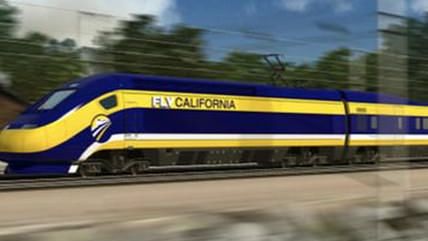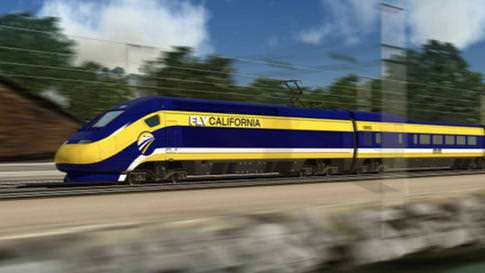Calif. Appeals Court Puts Contentious Bullet Train Back on Track


Previously on the lamest soap opera ever made: A judge would not authorize California to sell bonds to build the first part of a leg of its boondoggle high-speed rail project and ordered them to redo its business plan. Issues at hand included the fact that the plan bore little resemblance any more to what voters approved when they passed Proposition 1A back in 2008 and that the state has not identified any sources of money to pay for the estimated (as in, "the number that comes next is way too low") $68 billion project beyond one short, unusable leg from Madera to Fresno.
But late Thursday an appeals court overruled Kenny and gave the state permission to sell bonds to start the project. From The Fresno Bee:
In ordering Kenny to vacate his ruling that the authority's preliminary financing was deficient, the appeals court said the plan "was intended to provide guidance to the Legislature in acting on the Authority's appropriation request (in mid-2012). Because the Legislature appropriated bond proceeds following receipt of the preliminary funding plan approved by the Authority, the preliminary funding plan has served its purpose."
The ruling represents the second legal victory in a week for the rail program at the appellate level. On July 24, a different three-judge panel from the 3rd District ruled in the rail authority's favor and upheld Kenny's approval of an environmental impact report that selected the Pacheco Pass between Gilroy and Los Banos as the preferred corridor for high-speed trains between the Bay Area and the San Joaquin Valley. The San Francisco Peninsula communities of Atherton and Palo Alto had challenged Kenny's approval of environmental work for the Bay Area-to-Central Valley section of the rail line.
In the ruling (which can be read here) the judges note that courts have previously upheld the sale of bonds for public work projects that have changed significantly from their initial proposals, which seems rather disingenuous. The bullet train plan as it is now bears almost no resemblance to what voters approved. The lawyer for the plaintiffs fighting the train takes note of what this means to the Associated Press:
Stuart Flashman, an attorney for the plaintiffs, said the ruling "sends a really terrible message to Californians about whether they can trust what's on the ballot." He had argued that the requirement for a valid funding plan would not have been included in the ballot measure if it was not paramount to protecting the public interest.
"What this says, essentially, if I was your average voter and I was looking at a ballot measure, I'm going to vote no," he said. "I don't care what they promise me, I don't believe it."
That's actually a pretty good lesson to learn, though it's a shame it required a giant, costly train system.
It's still not over, though (it will never be over until Jerry Brown dies). There is still a battle over whether the proposed bullet train complies operationally within the criteria of Proposition 1A, which mandates that the train make a full trip from San Francisco to Los Angeles in under three hours and whether it can operate without subsidies from the state. (Ha, ha! No.) Judge Kenny will be tackling those claims probably later in the year.
UPDATE: Though the ruling gives the state permisison to sell the bonds, counsel for the plaintiffs note that the ruling doesn't give the California High-Speed Rail Authority permission to actually access the money until they produce another business plan.
Show Comments (26)